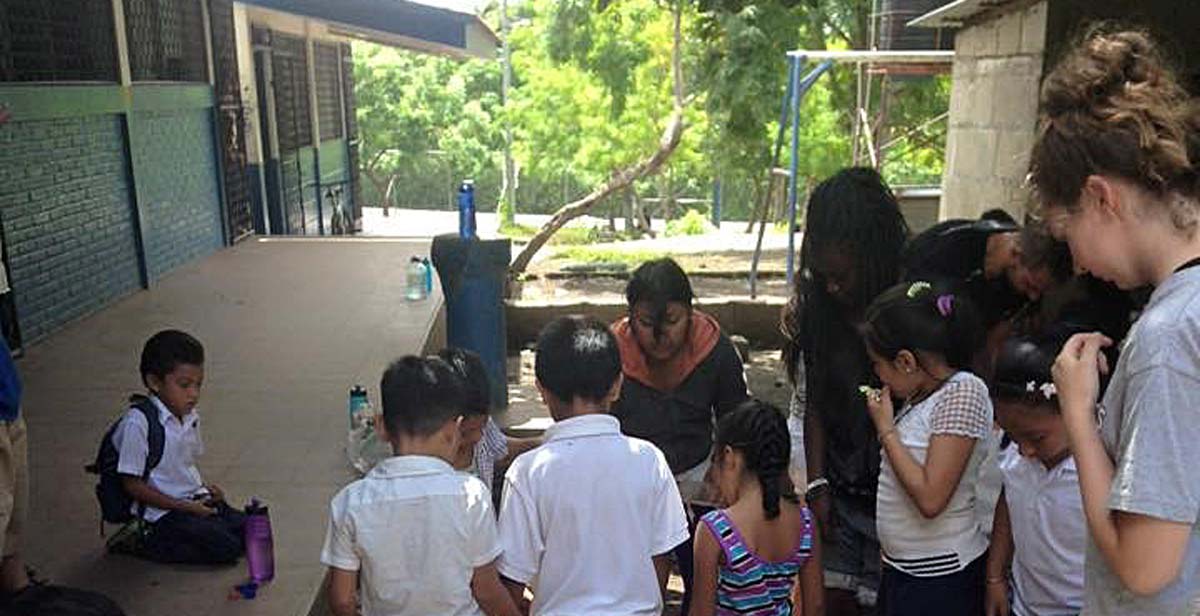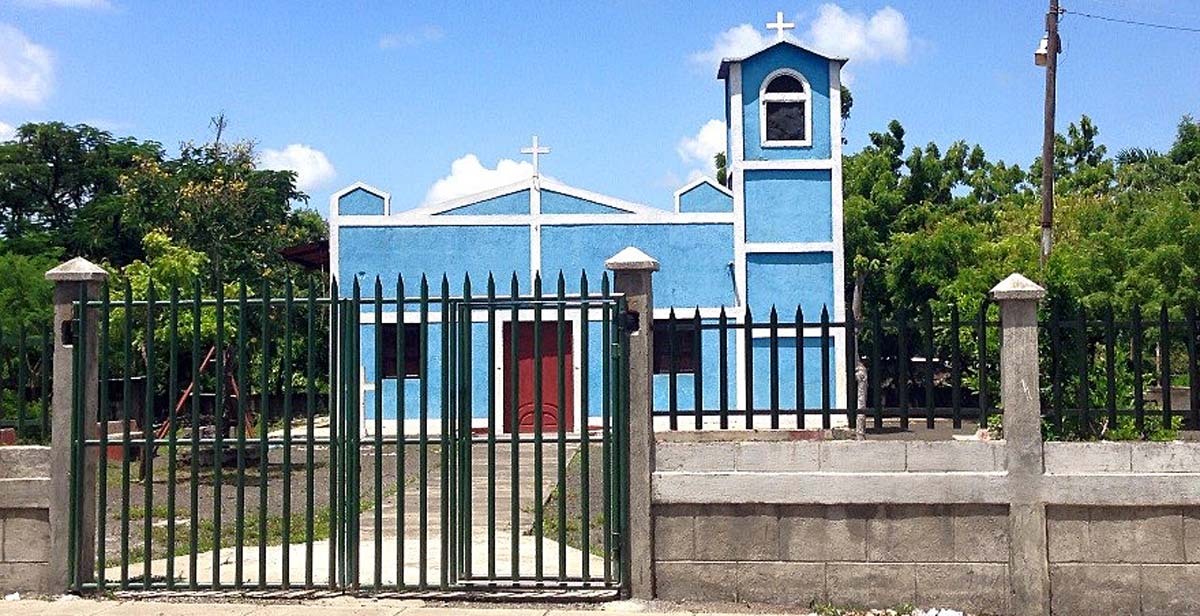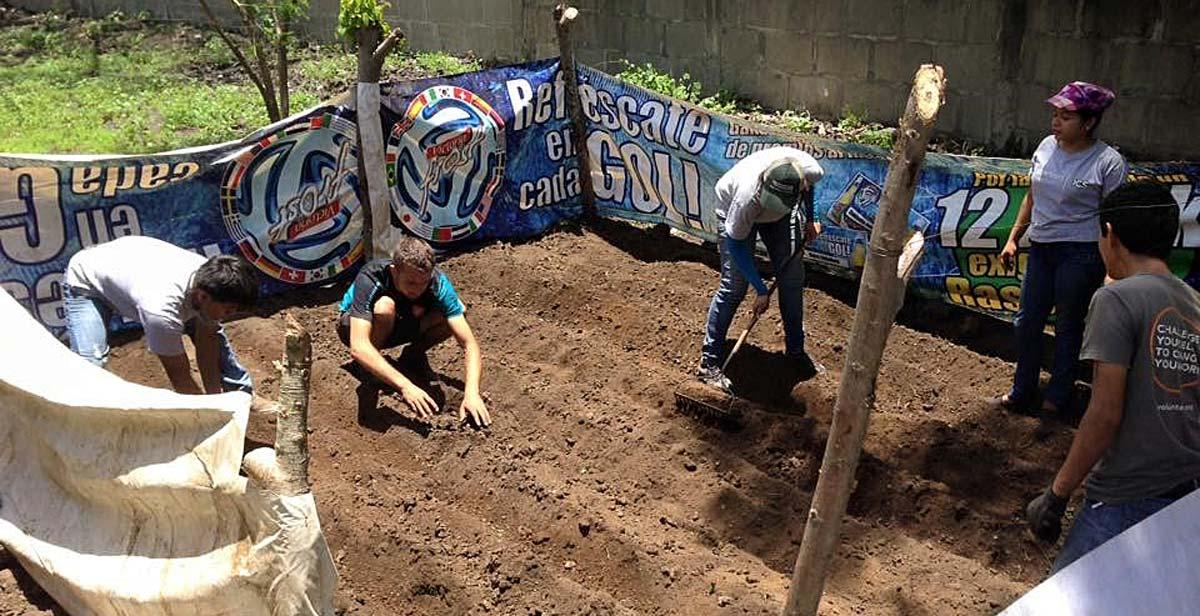As an ICS volunteer, one of the challenges you face is managing your expectations. Many volunteers will tell you that they boarded the plane feeling ready to change the world, and then felt shocked when 10 weeks past by so quickly. I was certainly one of those volunteers.
What I’ve come to realise though, is that like most things we are just one piece of a bigger picture, and you need to look at all the cycles before, and think about the cycles to come to understand your role in what ICS is trying to achieve. So my advice would be; think of what you are doing as planting a seed and creating roots in the community. It’s difficult to change one person’s outlook on something in 10 weeks let alone an entire community, so don’t try to. Instead try to put forward an idea that will hopefully grow over time into something bigger, which is exactly what we did during my placement in Masaya, Nicaragua.
I was part of the last cycle working in a small village called La Sabanita in the Masaya Volcano Reserve, and we were working with the community to encourage healthy eating and sustainable food sources by creating vegetable patches in 20 homes. In addition to this, we were encouraging recycling by educating on the long term damage of littering, and showing how things can be reused. During our placement, we targeted three groups to help plant the seed of thought in the community; the village school, 20 ambassador families, and the village church.
The village school
By the time we arrived, the cycles before us had already created a great relationship with the village school, which allowed us to use their classrooms and put together activities for the children. During our cycle, with the help of our mascot ‘Señor Botella’, we decided to run a bottle collecting competition with the classrooms to encourage all the children to recycle.

Against all expectations, 200 pupils collected more than 12,000 plastic bottles after the first week, and a further 5,000 on the second week. Needless to say, counting, squashing and storing these bottles was far more of a task than we had anticipated, but the children learnt a great lesson, the school was able to sell the plastic for a small profit, and the streets of La Sabanita were a little cleaner. This was such a worthwhile relationship to build as these children are La Sabanita’s future, and if even a fraction of them learnt something from our work and carry it forward into their adult lives, it will have a positive impact on the community.
20 Ambassador Families
20 families were chosen to have vegetable patches during our cycle, on top of 15 families from the previous cycle. These families were given manuals to help them care for the vegetable patches, and became ambassadors for surrounding families. We also discovered that families from the previous cycle had given cuttings from their plants to neighbours to help them to grow their own, which was a clear indication that interest was growing. In addition to this, we held a small food fair in the village where we gave out a recipe book and cooked various meals, such as onion soup and gazpacho, to show the families what they could do with the produce from their patches. Using families like this has so much potential to develop because if each of these 35 families could encourage just one more family to start eating healthily and growing their own produce, it would do wonders for the health of the community.
The village church
During the second half of our cycle, we approached the village church to see if they would let us build a large vegetable patch, a water collection point, and hold a workshop on the church ground. This was a new relationship to establish, but the church is right at the centre of the community and it could act as an excellent example for so many more families. The water collection point was also something we hadn’t been able to implement during the cycle in all the individual homes, but it was easy to build, and hopefully families who wanted to could use it as an example to create their own. The church was open to the proposal and agreed it would be beneficial for the community. We held a small workshop where we gave out more manuals and recipe books, and the church agreed to continue to encourage families to eat healthily and grow their own vegetables. Similar to the ambassador families, the church also planned to give out cuttings to help start some new vegetable patches, and use some of the produce in community events.

Sometimes it can be difficult to see the progress you’ve made in such a short period of time, but if you look at the handful of people you might have influenced and think of the impact those people could have on others, it shows how ideas can hopefully develop over time. At some point you need to accept that people need to make the change for themselves, they can’t be forced, and we have left La Sabanita with the knowledge, skills, and hopefully the inspiration, to continue the work that we were doing.
Written by ICS Alumni Anna Pepper (July - September 2015 cycle, Nicaragua)



